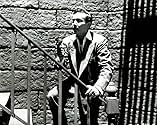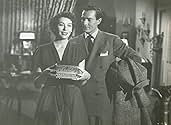Aggiungi una trama nella tua linguaIn San Francisco's Chinatown, a Chinese-speaking Caucasian criminal robs an antiquities shop and murders the owners, leaving the police with one clue, the killer's voice heard on the phone b... Leggi tuttoIn San Francisco's Chinatown, a Chinese-speaking Caucasian criminal robs an antiquities shop and murders the owners, leaving the police with one clue, the killer's voice heard on the phone by a switchboard-operator.In San Francisco's Chinatown, a Chinese-speaking Caucasian criminal robs an antiquities shop and murders the owners, leaving the police with one clue, the killer's voice heard on the phone by a switchboard-operator.






























